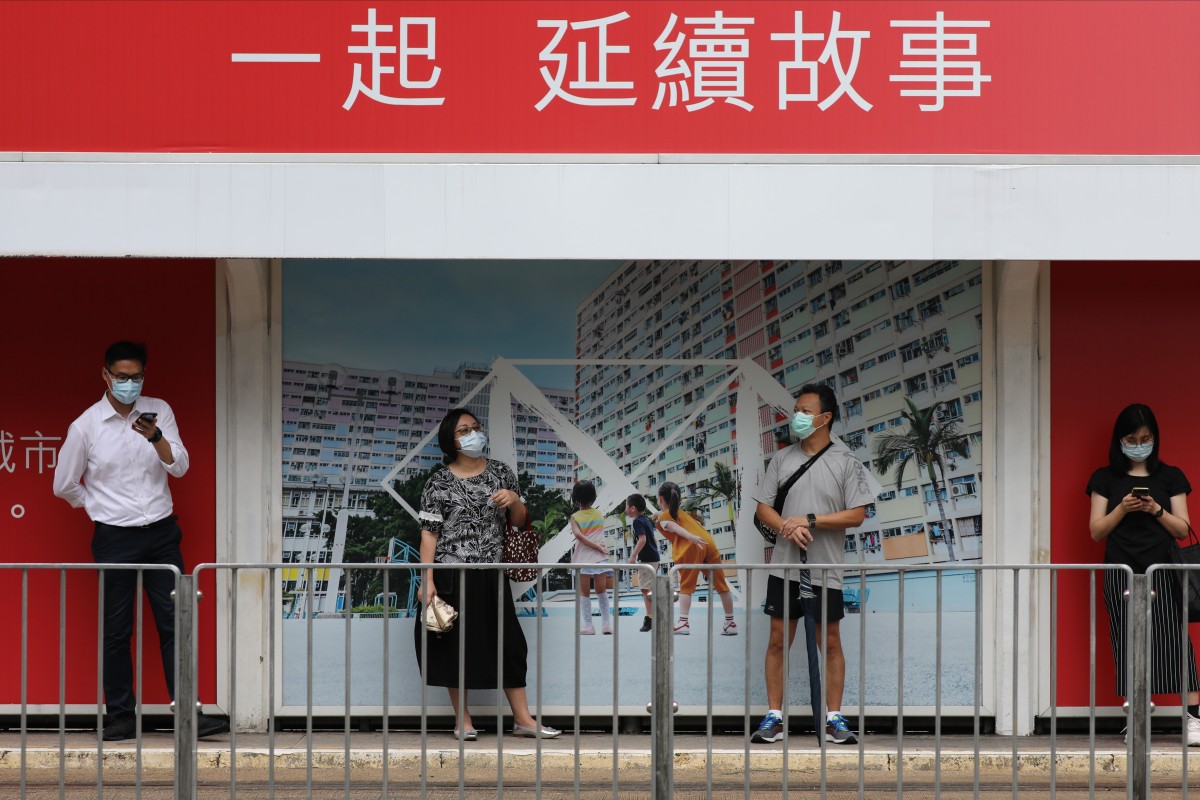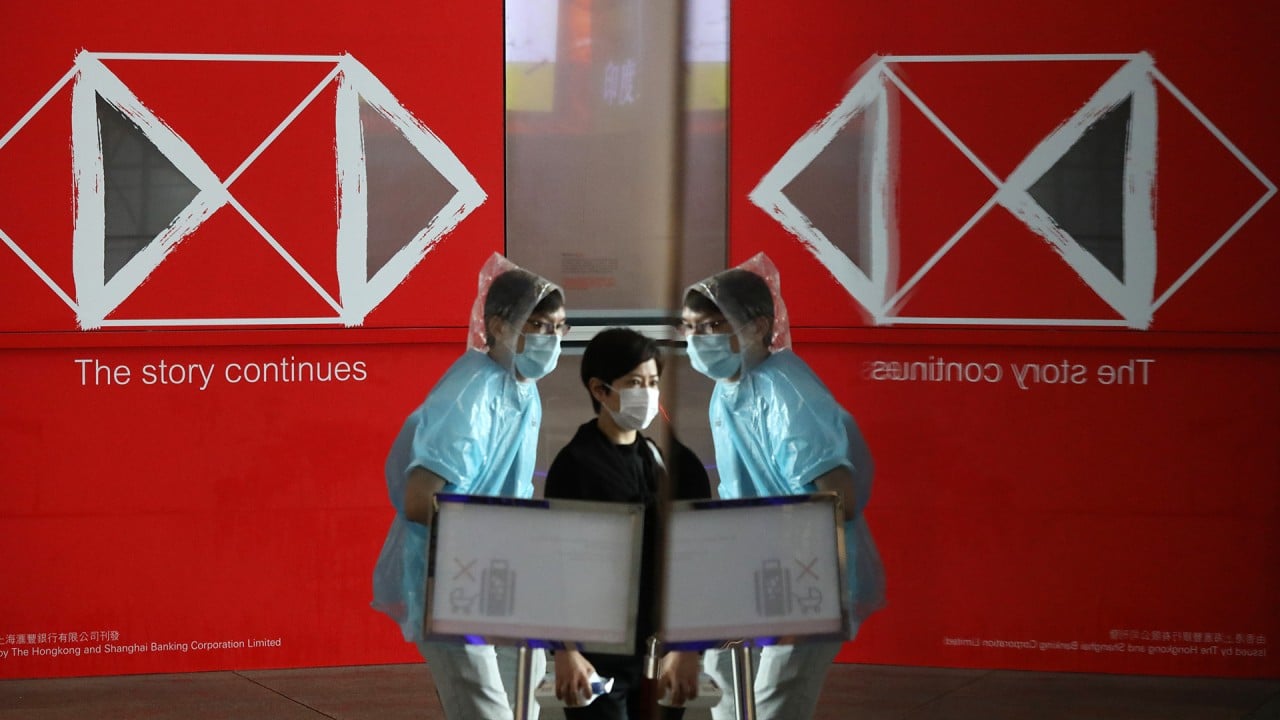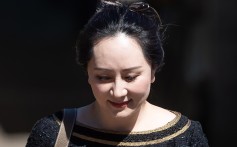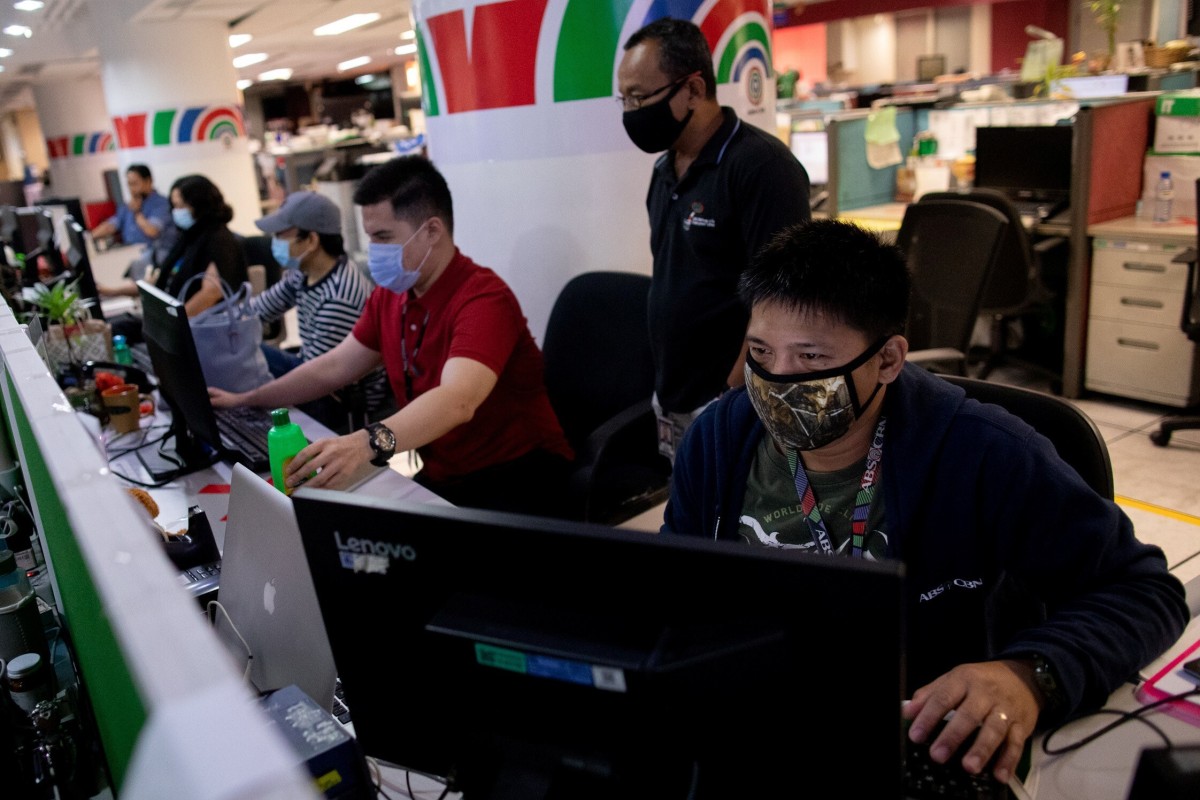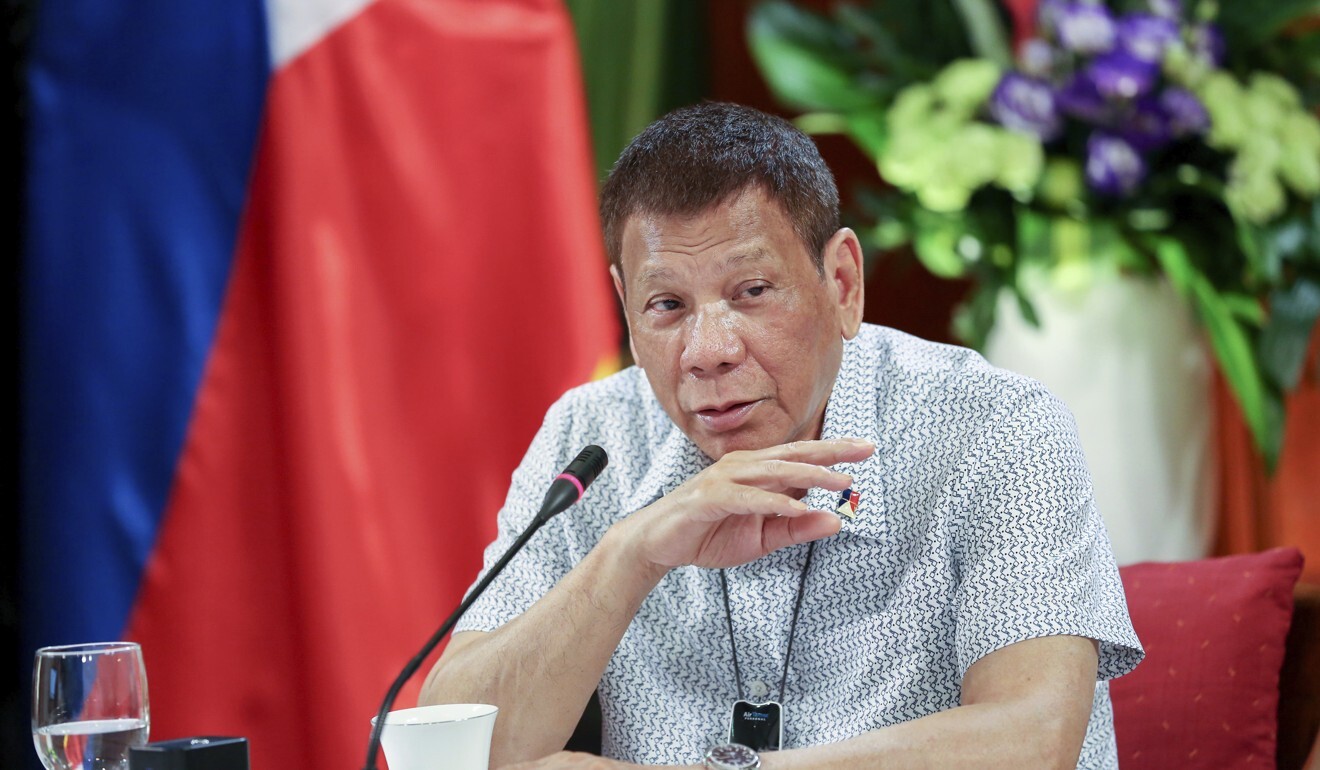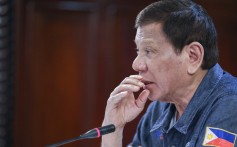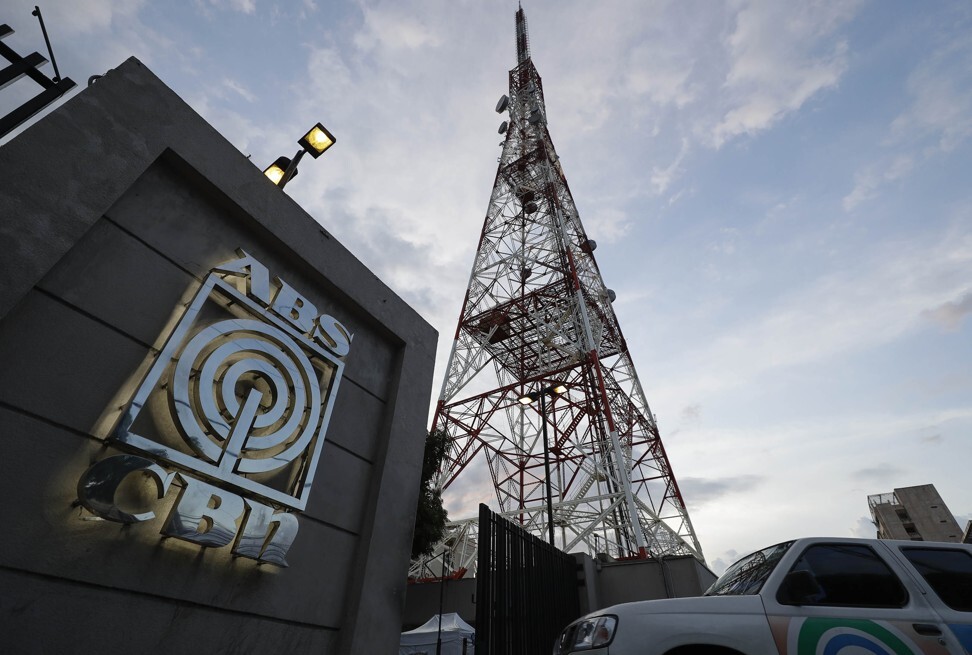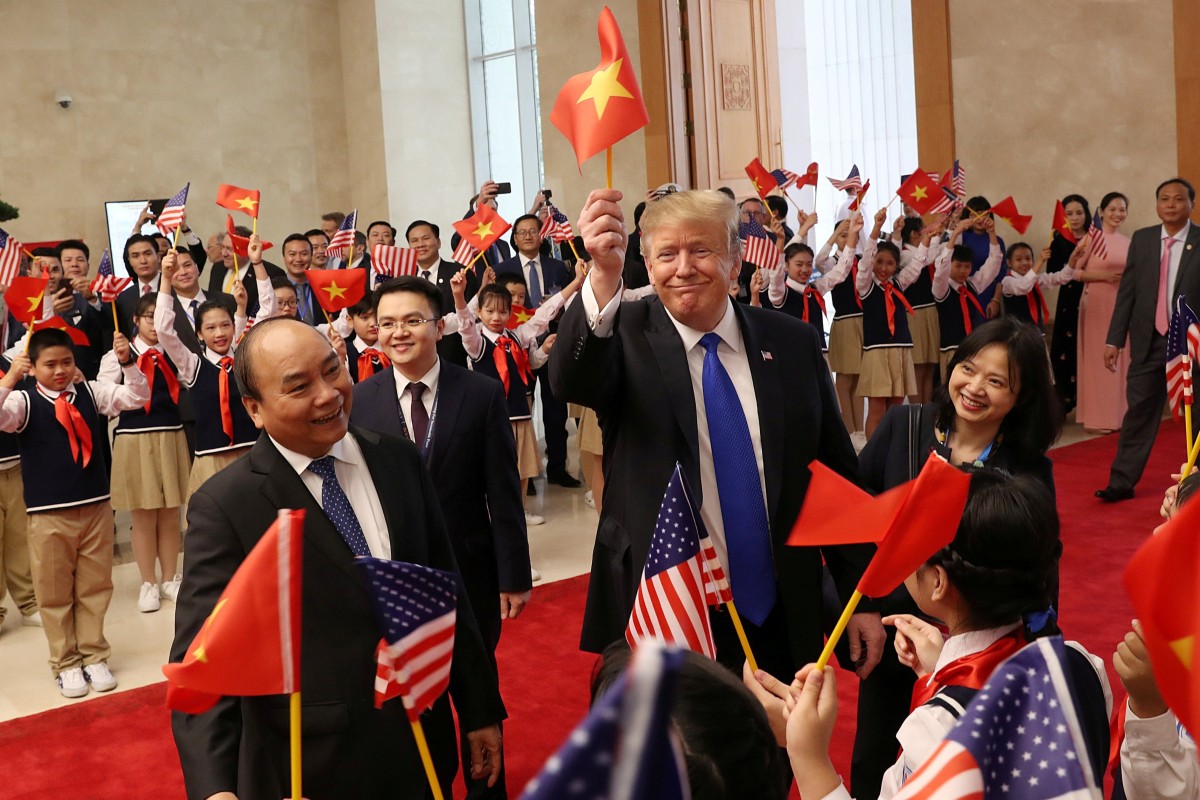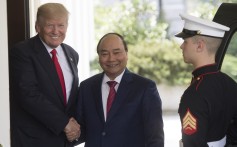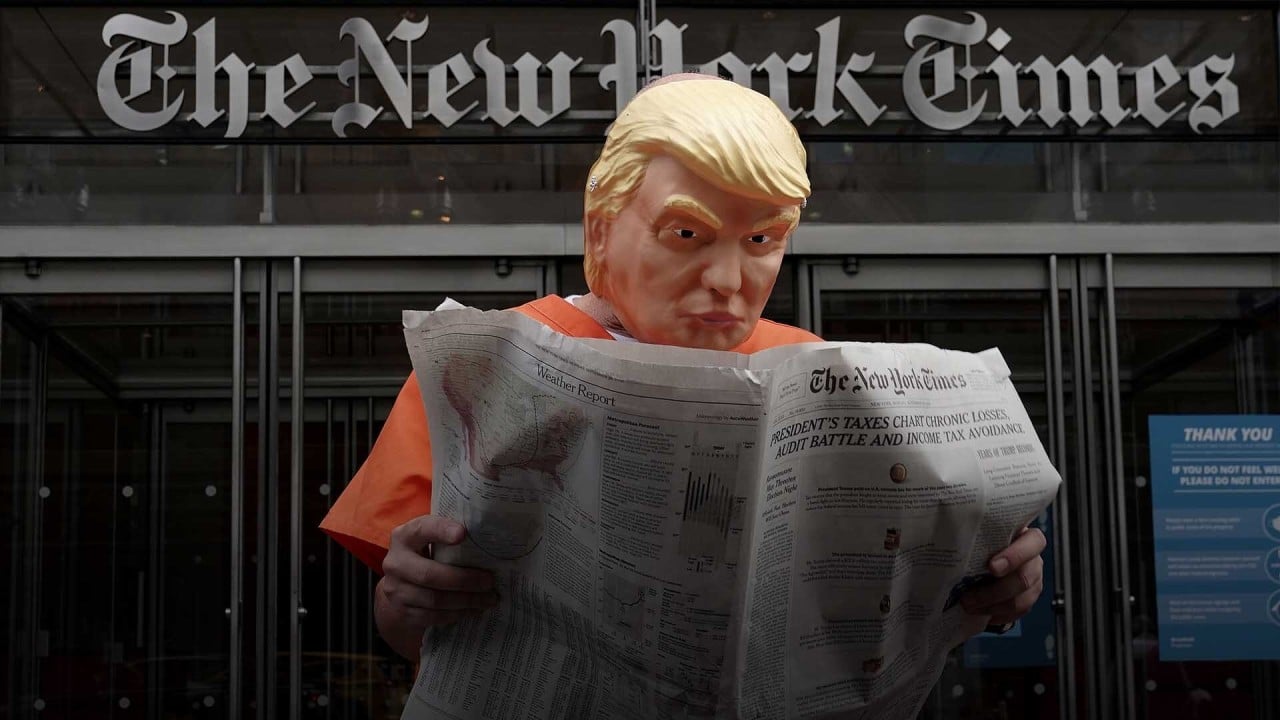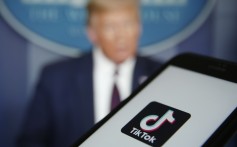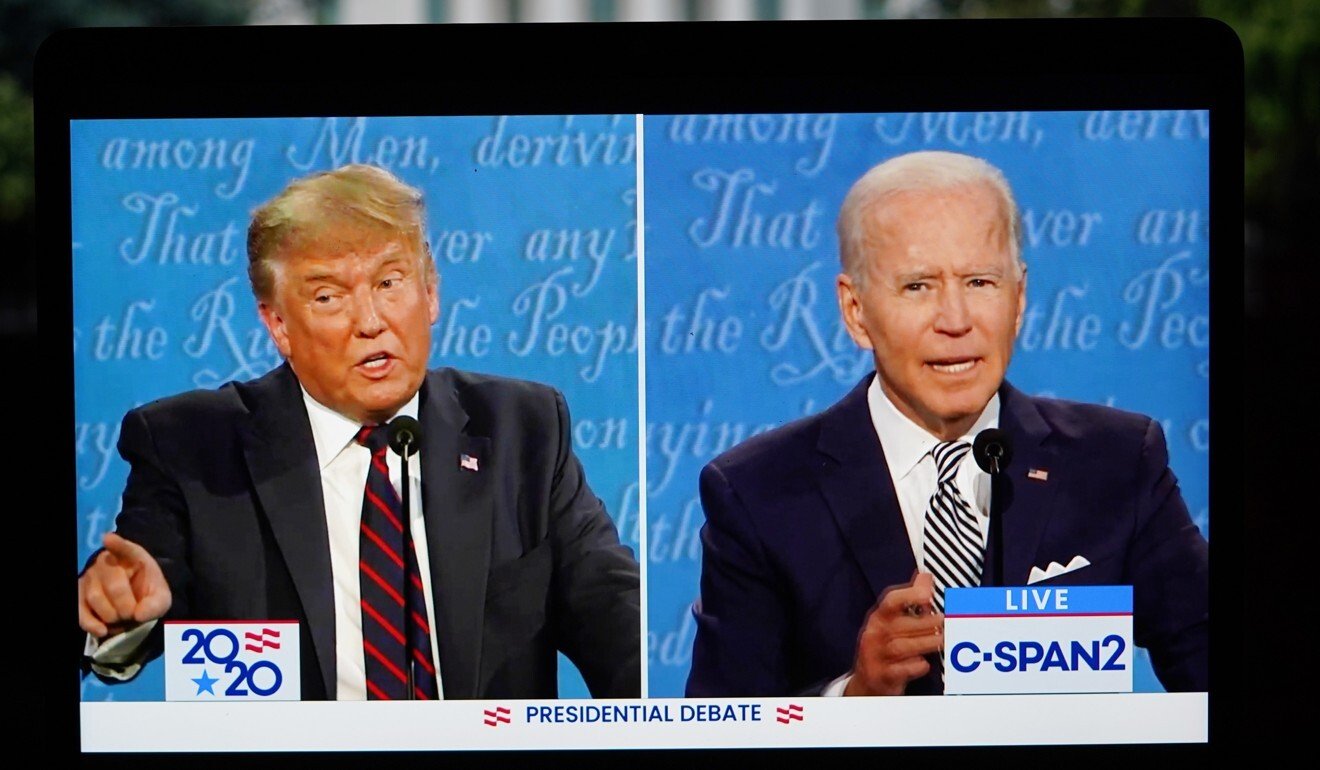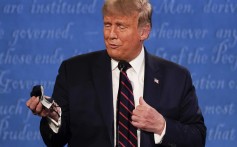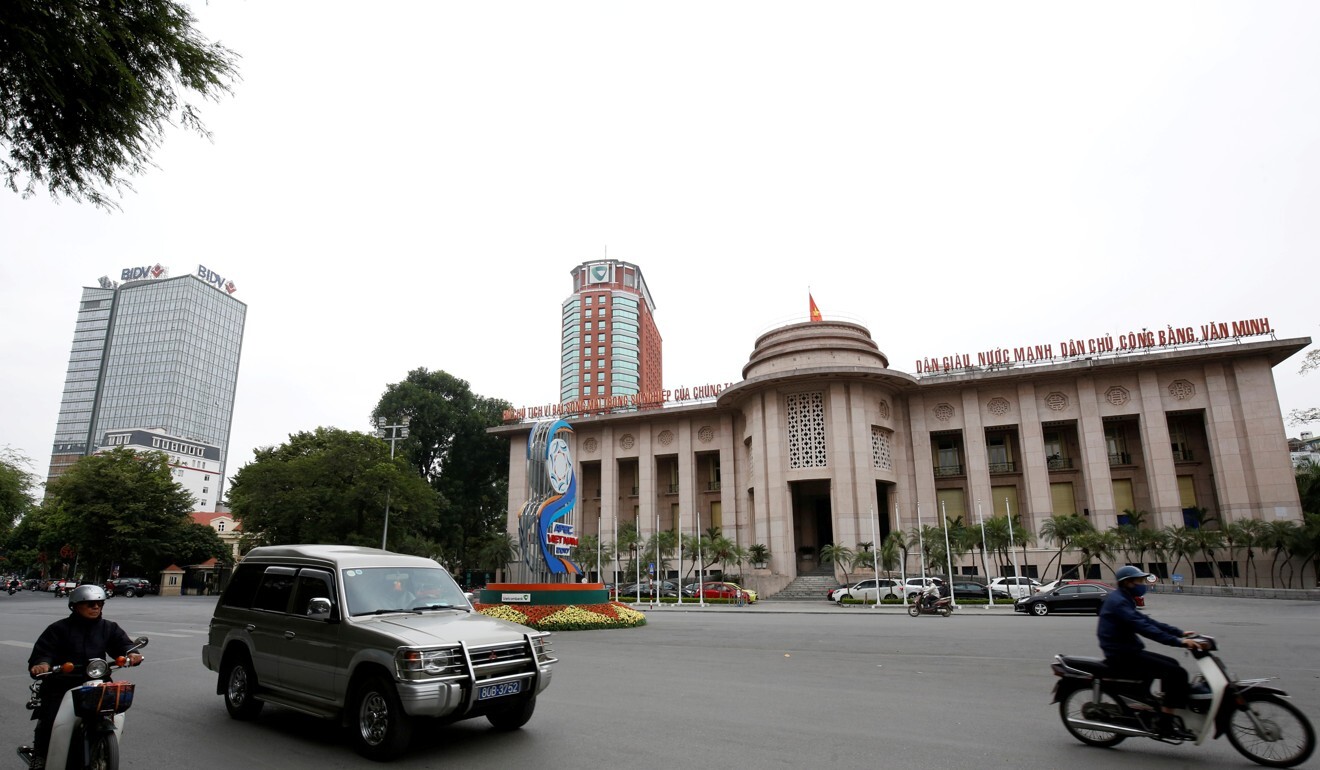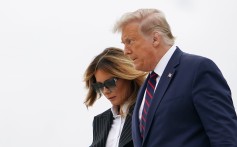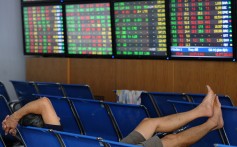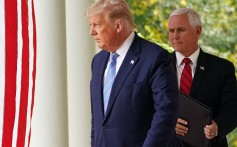Are Singaporean workers really losing jobs to Indian expats due to Ceca free-trade deal?
IMPERIALISM THE HIGHEST FORM OF CAPITALISM
As Singapore stares into its Covid-fuelled deepest recession, job anxiety is fuelling a sudden new wave of resentment over a deal dating back to 2005
Read social media and it seems the immigration floodgates have opened, but the figures tell a different story. Experts say jobs are being created, not lost
Kok Xinghui and Dewey Sim in Singapore
Published: 8:00am, 12 Sep, 2020
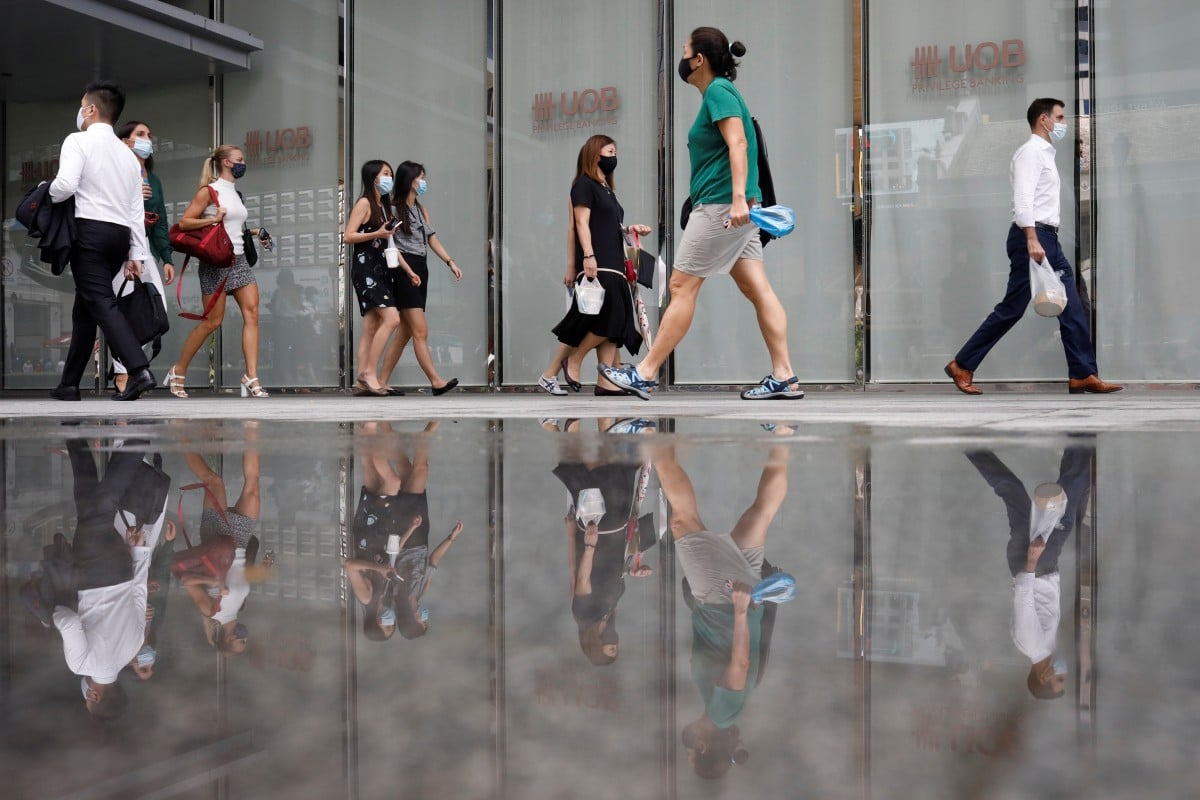
Office workers in Singapore. Photo: Reuters
As Singapore’s economy slows amid the coronavirus pandemic and job losses mount, people’s anxieties over their livelihoods have found a convenient target: a free-trade agreement Singapore signed with India in 2005. On social media, the Comprehensive Economic Cooperation Agreement (Ceca) is being blamed for willy-nilly letting Indian nationals into Singapore to steal jobs from locals – no matter how many times the government says it is not true.
On a Facebook post of a news article explaining that Ceca did not give Indians automatic access to citizenship, permanent residency or employment, Stephanie Low commented: “Our jobs are taken by Ceca! Wait till the ministers’ jobs are also taken by them, then they will know!”
Others, like Emran Rahman, disparagingly referred to Indians as Ceca, saying: “Everywhere CECA! Even housing estates have them around!”
As virus batters Singapore’s economy, lost jobs loom as long-term headache
13 Aug 2020

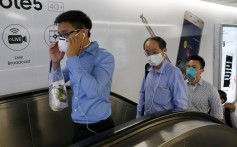
On the public group SG Opposition, Michael da Silva said the government was letting professional Indians in to give them citizenship and eventually gain their vote for the ruling party.
These worries have become more pronounced as Singapore battles its worst recession and countries around the world continue struggling to contain the
Covid-19 pandemic.
Despite multiple clarifications from the authorities that Ceca does not give Indian jobseekers a free pass into Singapore, disgruntled citizens have latched onto two areas within the 16 chapters of the agreement that came into force in 2005. Their points of contention: intra-corporate transfers that let companies bring India-based staff into Singapore for a maximum term of eight years without having to first advertise the jobs to locals, and a list of 127 professions covered by the deal that range from database administrator, to accountants to financial analysts to medical specialists.
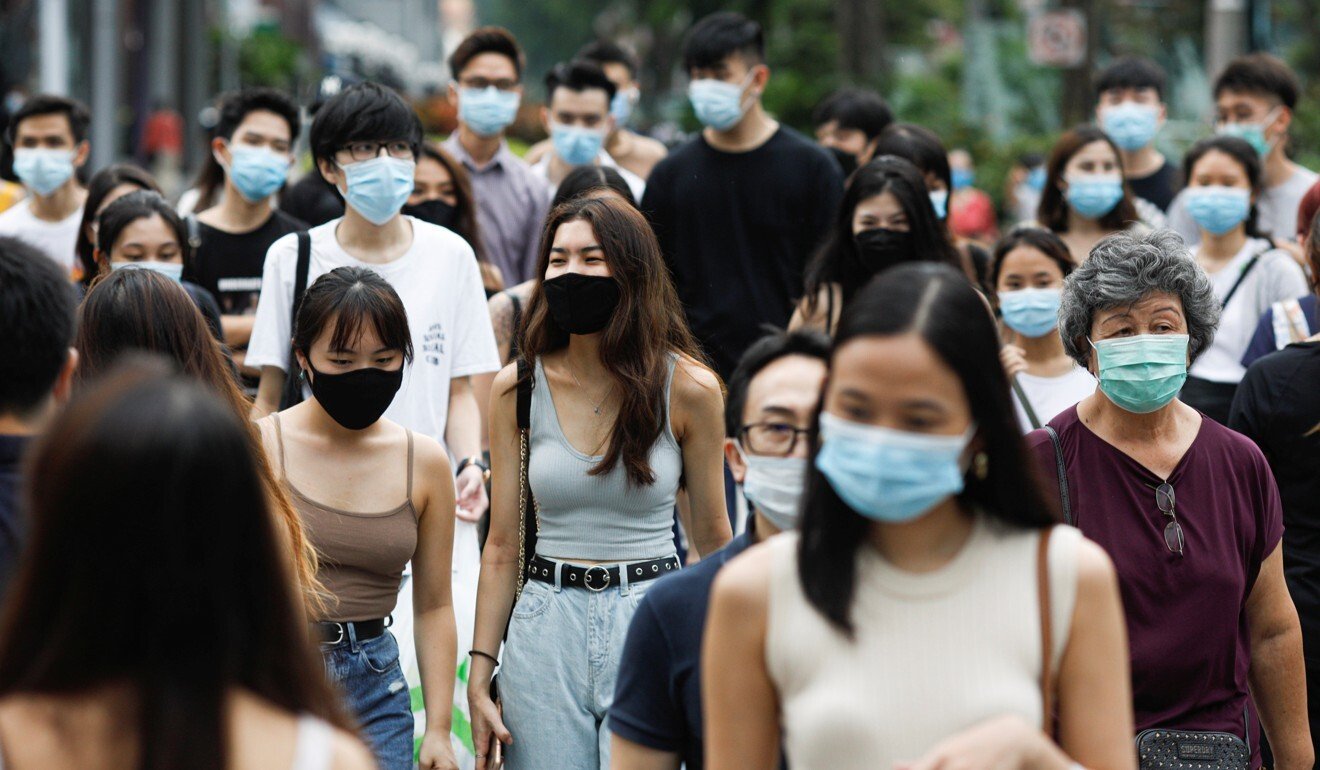
People cross a street in the shopping district of Orchard Road, Singapore. Photo: Reuters
Victor Tan, for example, who requested a pseudonym fearing a backlash that could hurt his career, insisted that job woes were caused by Ceca’s “free flow” of Indian nationals coming to Singapore.
He said his 14 years in the relocation industry – helping expatriates move in and out of Singapore – let him see that since 2016, the proportion of nationalities had shifted from being mostly Australian and British, to Indian.
To Tan, the free-trade agreement was “lopsided”. “We don’t see any of our Singapore locals going over to India to hold high positions. Instead, a lot of them are coming here, holding high positions,” he said. “When I was job searching, I didn’t see any opportunities in India for Singaporeans to go over.”
His sweeping views of the free-trade agreement are not based on truth. But they do reflect sentiments on social media.
This “obsession”, said Nanyang Technological University sociologist Laavanya Kathiravelu, should be seen within the context of rising economic uncertainty, with Singapore’s economy
expected to shrink by up to 7 per cent this year, even with a financial stimulus of about S$93 billion (US$68 billion).
Singapore on course for worst recession since independence
26 May 2020

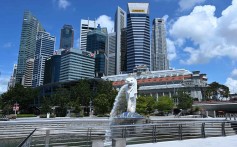
Kathiravelu said: “With the local and global economies experiencing sluggish growth, and many Singaporeans losing their jobs or having to go on reduced pay, the seeming preference for hiring foreigners becomes a higher-stakes issue. It’s being conceived as a zero-sum game, where a job given to a foreigner means one less job for a Singaporean.”
It is not the first time there has been unhappiness over Ceca. Ceca grabbed headlines last year when a man was captured shouting at his
condominium’s security guard and netizens immediately assumed he was an Indian expatriate – in fact, he was born in India but now has Singapore citizenship. Vitriol against Indian nationals since then has grown among opposition voices who use Ceca as an anti-immigration scapegoat and call for it to be abolished.
Political analyst Woo Jun Jie said the debate over foreign labour was long-standing but he sensed a shift in the conversation from when the issue became a political hot potato before the 2011 general election. In the years before that vote the population had grown from 4 million in 2000 to 5 million in 2010, but during the same time frame the number of permanent residents and foreigners almost doubled (from 287,000 PRs and 754,000 foreigners in 2000 to 541,000 PRs and 1,305,000 foreigners in 2010).
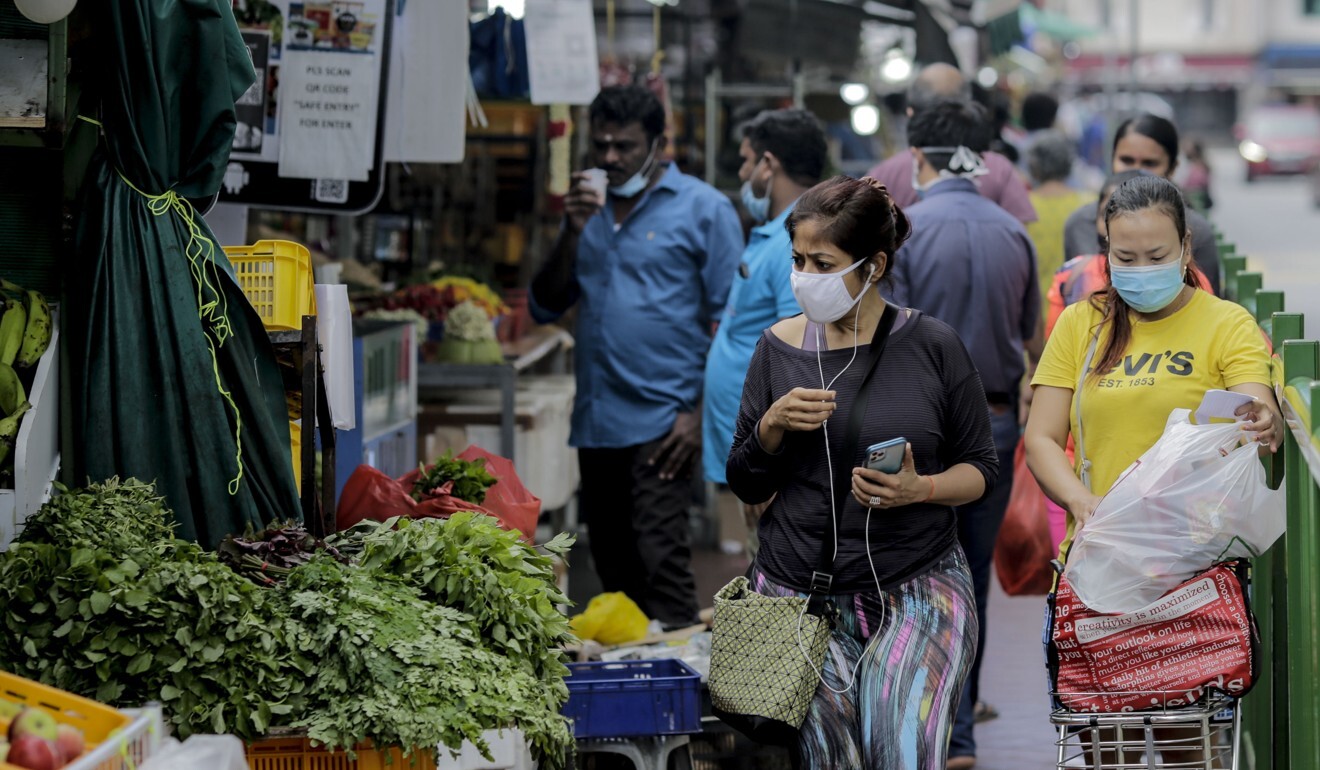
A vegetable stall in the Little India district of Singapore. Photo: EPA
While the discussion back then focused on the strain the growing pool of foreigners was placing on public infrastructure, this time the debate revolved around issues of inequality and access.
“Specifically, the public discontent now seems to be centred around job availability and pay levels, particularly for local PMETs [professionals, managers, executives and technicians],” he said.
Consequently, when Singapore’s 14th parliament opened last month, much of the debate was on how best to strike a balance between saving jobs for Singaporeans and not cutting out the foreigners needed to beef up Singapore’s small workforce of just 2.33 million and burnish its reputation as a global city.
Those from the ruling People’s Action Party and the opposition gave many suggestions, from enacting anti-discrimination legislation to naming and shaming companies that favoured foreigners to setting a quota for employment passes, while the authorities took the chance to share statistics.
Intra-corporate transferees, for example, account for less than five per cent of all who hold employment passes (a work pass for higher-skilled workers that carries a minimum salary requirement of S$3,900 or about US$2,850). That worked out to about 9,500 workers, and Indian nationals were but “a small segment” of those, said the ministry of trade and industry.
Still, those like Tan remain unhappy and unelected politician Lim Tean continues to fiercely campaign for Ceca to be abolished.
IS CECA REALLY THAT DIFFERENT?
While public displeasure has zeroed in on Ceca, the free-trade agreement – which has helped trade between Singapore and India grow by S$7.6 billion since 2005 – is not much different from the 24 others that Singapore has signed when it comes to the movement of workers.
In an interview with This Week in Asia, a spokesperson for the Ministry of Trade and Industry said most free-trade agreements had commitments on the movement of workers, including on intra-corporate transferees.
“The purpose behind that is to facilitate companies when they invest overseas. When you invest overseas, you will want to bring some of your own employees to start off the investment,” said the spokesperson.
Explained: the CPTPP trade deal
19 Feb 2019

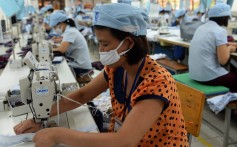
Minister of Trade and Industry Chan Chun Sing had told local media that Singapore’s Ceca commitments were not unique, and that most of the 164 World Trade Organisation members also had commitments on the entry of intra-corporate transferees under the General Agreement on Trade in Services. He said Singapore companies also made use of the intra-corporate transferees provision to take their employees along when starting out overseas.

Singapore’s Minister of Trade and Industry Chan Chun Sing. Photo: Facebook
Contrary to what Victor Tan and Lim Tean believe, agreements like Ceca benefit Singapore just as they benefit India, the government has maintained. Ceca allows Singapore banks DBS and UOB to set up shop in India, meaning Singapore companies can easily access these banks’ financial services when doing business in India. And there are many doing business in India. Chan said that by 2018, more than 650 Singapore companies had invested in the country.
What is unique about Ceca compared to other free-trade agreements is the annex of 127 professions. But while the list spells out what qualifies as a “profession”, it does not mean that those professionals get free entry into Singapore, or that they are prioritised over others.
“All foreign professionals – including Indian nationals – who wish to come to Singapore must meet work-pass qualifying criteria, including relevant education and professional qualifications, before they are allowed to work in Singapore,” said the Ministry of Trade and Industry spokesperson.
The inclusion of the list, the spokesperson said, was “a negotiated outcome” between Singapore and India.
There have also been many accusations that the finance industry is predominantly filled with Indian nationals. A Facebook user, for example, shared a photo of DBS chief executive Piyush Gupta, a naturalised Singaporean, with Indian staff behind him. The user asked viewers to “find a Singaporean or Chinese” in the photo. Prime Minister
Lee Hsien Loong rebuked the social media user, saying the photo was taken in India where DBS had opened a new office.

Singapore Prime Minister Lee Hsien Loong. File photo
“The person who put up the post surely knew this, yet he irresponsibly misused the [photo] to insinuate that DBS in Singapore was not being fair to Singaporeans,” said Lee in a speech in parliament.
While Leader of the Opposition Pritam Singh’s request in parliament for data on the breakdown of new jobs that went to citizens, foreigners and permanent residents earlier this year was met with wariness, the discontent over claims of foreigners dominating Singapore’s financial services sector seemed to prompt the government to release more data.
Transport Minister Ong Ye Kung, who sits on the board of the Monetary Authority of Singapore, told parliament that financial services employed 171,000 workers and seven in 10 were Singaporean. Just 16 per cent were foreigners while 14 per cent were permanent residents.
From Indian community to Chinese , Singapore feels the strain of immigration
20 Dec 2019

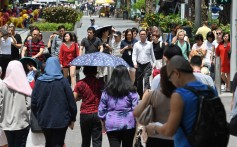
The percentages shift for senior roles, where 44 per cent are Singaporeans, 20 per cent are permanent residents and 36 per cent are foreigners. The foreigners in senior roles, however, are not made up of one nationality.
Ong said: “They come from over 50 countries, the largest group comes from Europe, with other significant nationalities from across Asia and North America.”
Banks in Singapore also shared their employment data with This Week in Asia. Citi Singapore said Singaporeans and permanent residents (PRs) made up around 80 per cent of its total direct hires in the city state, while this number was 95 per cent at its consumer banking department.
Jacinta Low, the head of human resources planning at OCBC Bank, said more than 90 per cent of the bank’s 7,000-strong workforce in Singapore were citizens or PRs. Citizens also account for 82 per cent of the bank’s senior leaders.
For the London-headquartered Standard Chartered bank, 83 per cent of its Singapore workforce were citizens or PRs, as were 90 per cent of its management team, while DBS Bank said over 90 per cent of its 12,000-strong Singapore workforce were Singaporeans and PRs. All 16 members of its top leadership team were Singaporeans.
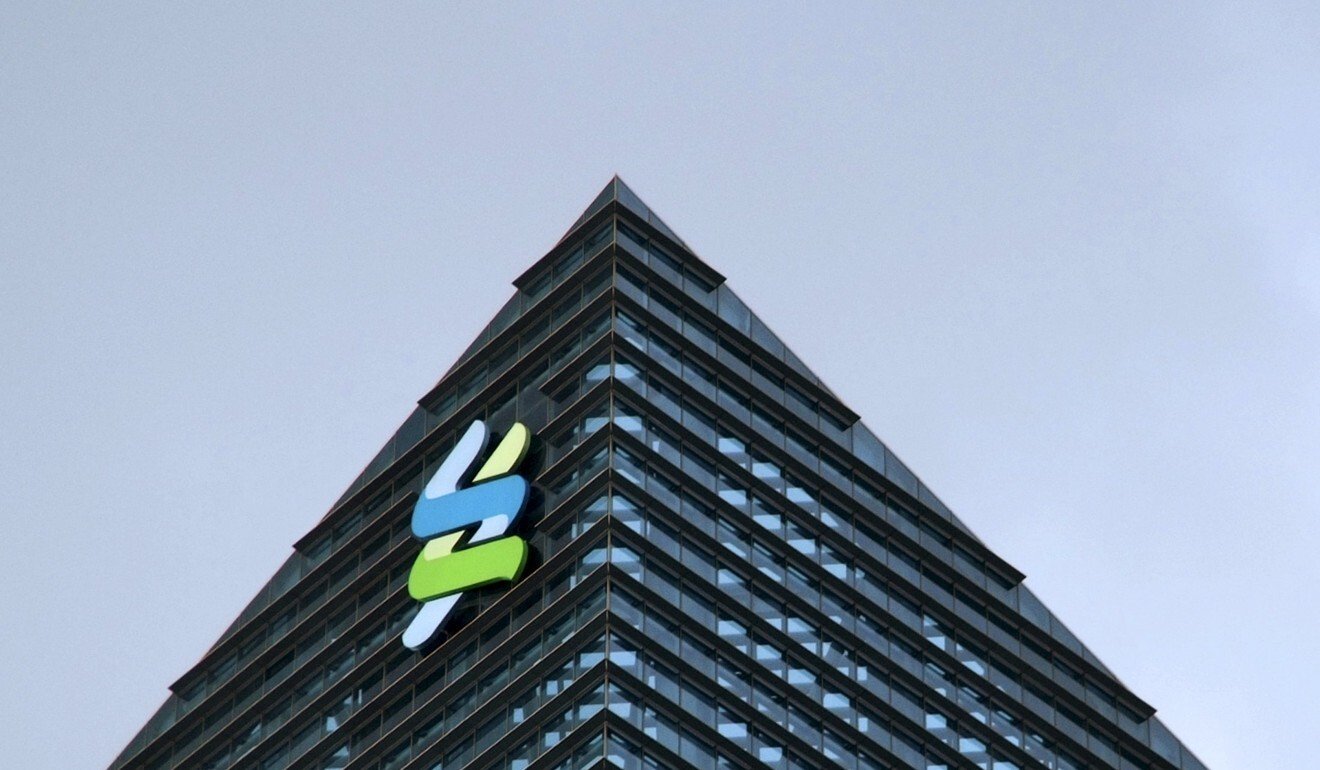
Standard Chartered’s Singapore office. Photo: Reuters
Academics say the government’s concern that data could be twisted and misinterpreted is not entirely unfounded but sociologist Kathiravelu pointed out that fine-grained data could also help combat speculation based on anecdotes. This could be in the form of a breakdown of non-Singaporeans in specific sectors such as IT or banking, and a further breakdown by income and job title, when there was a perception that there was an over-representation of foreigners.
But opposition politician Lim Tean said the government could opt to cherry-pick data it released and this would not help give Singaporeans the full story. “I am very sceptical of the figures that the government is producing, I make no bones about that,” he said.
QUOTAS, PENALTIES, REGULATIONS
Singapore’s freshly minted parliamentarians raised several suggestions to stem anxieties at last month’s week-long parliamentary session.
Particularly, labour member of parliament (MP) Patrick Tay from the ruling People’s Action Party suggested that Singapore should consider raising the minimum-salary criteria for foreign workers in the IT and professional services sector, referring to how there are generally more firms from the two sectors on the hiring discrimination watch list.
His comments followed the authorities’ recent move to raise the minimum qualifying salary for new Employment Pass holders from S$3,900 to S$4,500. Those in financial services would need to have a minimum salary of S$5,000. The salary floors are also pegged to years of experience, so candidates in their 40s would have to earn around double the minimum qualifying salary. This was largely backed by economists and academics as a step in the right direction to restrict the number of foreign hires.
Tay, who is also the assistant secretary general of the National Trades Union Congress, said harsher penalties could be meted out to firms with discriminatory hiring practices, suggesting the authorities disallow these companies from winning public-sector contracts.
Singapore pairs citizens with jobs and training amid recession
11 Aug 2020

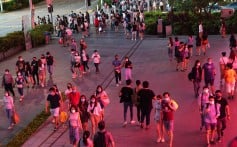
The manpower ministry could also name and shame firms that repeatedly undermined the government’s efforts to protect its Singaporean workforce, he said, while more legal power could be given to the agency in charge of addressing workplace discrimination and harassment known as the Tripartite Alliance for Fair and Progressive Employment Practices.
Tay also said the authorities could impose a two-tiered quota – one for higher-skilled professionals with higher salaries, and another for mid-skilled executives. This way, companies would still be able to hire foreign talents with specialised skill sets to drive technology-based initiatives, he said.
Singh the opposition leader also called for the government to consider enacting anti-discrimination laws to punish errant companies that discriminated against Singaporean workers.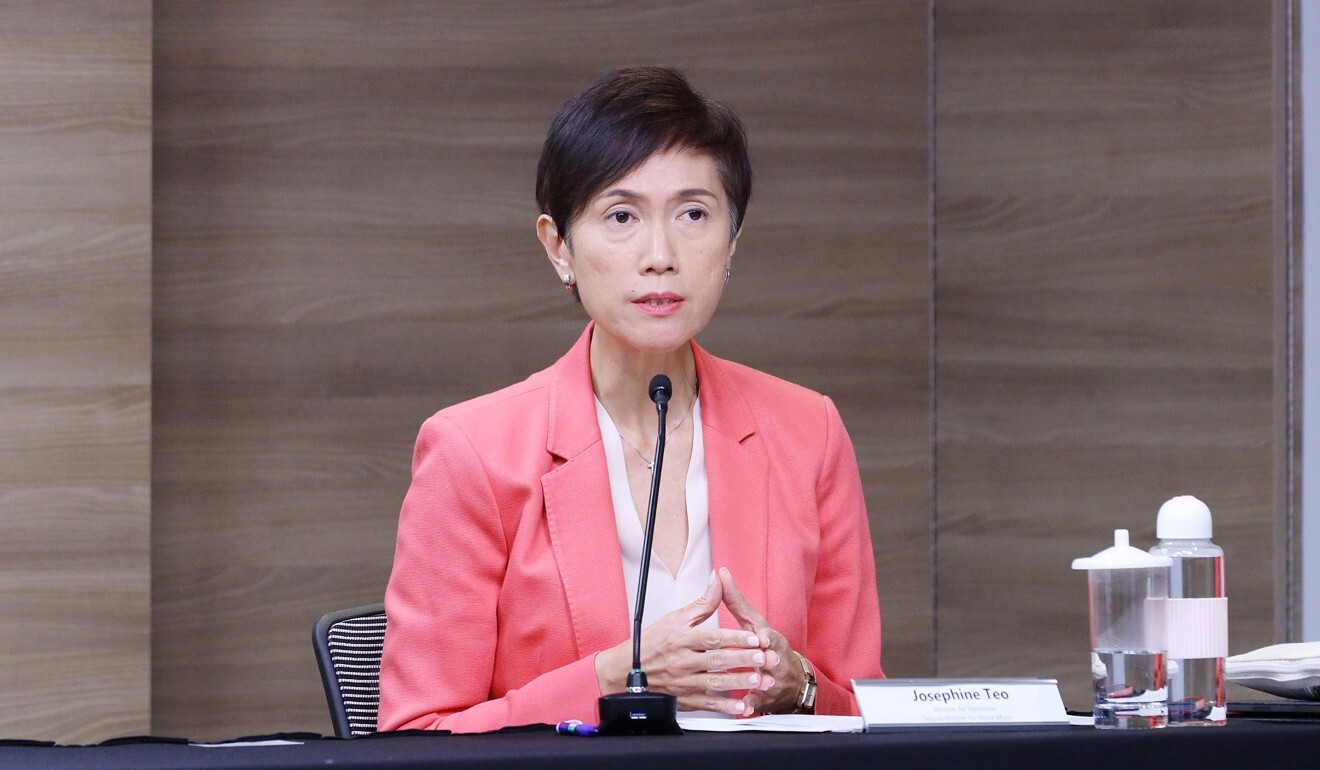 Singapore’s Manpower Minister Josephine Teo. Photo: AFPBut Manpower Minister Josephine Teo defended the city state’s current laws, saying that punishments, including the curtailment of work-pass privileges, would put pressure on firms.“Not so many businesses are able to operate with a 100 per cent local employment workforce so this kind of a penalty is much more painful than if we were to, say, introduce a fine,” she said in parliament.With Singapore seen as a potential beneficiary from businesses seeking to relocate or shift operations amid geopolitical uncertainties, Trade and Industry Minister Chan Chun Sing, at a business forum on Tuesday, said the city state would continue to be open to “top international talent”. But this would be done in a “calibrated manner” to enable businesses to plan for the future and for Singaporeans to learn from them.“Our foreign worker policies will shift increasingly towards quality rather than quantity,” added Chan.EASY TARGETSMeanwhile, the fallout from the polarised debate over Ceca is complex. Indian nationals in the city state feel that they are being unfairly targeted while ethnic Indians – who form 7 per cent of the 3.5-million-citizen population – have expressed frustration at an ethnic group being the focus of racist vitriol, even as they have reservations about new migrants and professionals from India who are perceived to be more class conscious.IN THE GHETTOKathiravelu, the sociologist from Nanyang Technological University, suggested that Indian professional migrants were highly visible because they lived in “residential enclaves” and gravitated towards specific sectors such as IT and banking.
Singapore’s Manpower Minister Josephine Teo. Photo: AFPBut Manpower Minister Josephine Teo defended the city state’s current laws, saying that punishments, including the curtailment of work-pass privileges, would put pressure on firms.“Not so many businesses are able to operate with a 100 per cent local employment workforce so this kind of a penalty is much more painful than if we were to, say, introduce a fine,” she said in parliament.With Singapore seen as a potential beneficiary from businesses seeking to relocate or shift operations amid geopolitical uncertainties, Trade and Industry Minister Chan Chun Sing, at a business forum on Tuesday, said the city state would continue to be open to “top international talent”. But this would be done in a “calibrated manner” to enable businesses to plan for the future and for Singaporeans to learn from them.“Our foreign worker policies will shift increasingly towards quality rather than quantity,” added Chan.EASY TARGETSMeanwhile, the fallout from the polarised debate over Ceca is complex. Indian nationals in the city state feel that they are being unfairly targeted while ethnic Indians – who form 7 per cent of the 3.5-million-citizen population – have expressed frustration at an ethnic group being the focus of racist vitriol, even as they have reservations about new migrants and professionals from India who are perceived to be more class conscious.IN THE GHETTOKathiravelu, the sociologist from Nanyang Technological University, suggested that Indian professional migrants were highly visible because they lived in “residential enclaves” and gravitated towards specific sectors such as IT and banking.
Even as early as a decade ago, English-language broadsheet The Straits Times reported that Indian families occupied 250 out of the 502 units at The Waterside, an upmarket condominium located in eastern Singapore. Lim, who heads opposition party Peoples Voice, also noted this trend, saying that many residential developments in the East Coast neighbourhood were populated by Indian nationals.

Joggers run near the Merlion Park in Singapore. Photo: Reuters
He said he felt “disturbed” when he visited Changi Business Park, where many financial institutions, including DBS Bank, Citi Group, UBS, Credit Suisse, JP Morgan and Standard Chartered Bank, park their back-end operations and call centres.
“I went there quite a number of times, and I was one of the first to say that when you go there, it feels that you are in a totally different country,” Lim told This Week in Asia. Some Singaporeans have coined the term Chennai Business Park when referring to the industrial area due to the large crowds of Indian nationals working there.
This visibility, said Kathiravelu, made Indians the targets of xenophobia as they were seen as dominating specific industries and not integrating into the social life of the country.
They were also seen as competing with Singaporeans for resources in a way that white or European expatriates were not, she added. “This is perhaps an expression of structural
racism and a colonial hangover where there is still a perception that white expats may be better qualified and suitable for jobs than their Indian or Asian counterparts.”
DBS: Covid-19 could widen income gap, threaten workers aged 35-44
18 Aug 2020

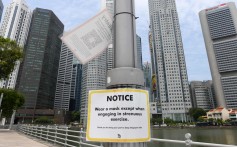
Still, Lim stressed he was not “against Indians” or xenophobic but felt that Singaporeans should question why many Indian workers were taking up jobs he believed could be done by locals.
While the nativism that Singapore is grappling with is not unique – opportunistic politicians the world over have flogged such sentiments as countries turn inward – the rise of these feelings is a headache for a city state that relies on an open economy to survive.
Alex Capri, a visiting senior fellow at the National University of Singapore’s Business School, felt this was more of a political issue than an economic one. “This sort of thing plays well in the media. But if looked at objectively, there’s an overall net benefit for Singapore as the multinational enterprises as a whole contribute to Singapore’s economy and create local jobs,” said Capri.
He added that if there were increased regulations to FTAs including Ceca, the city state’s reputation as an open and free hub could be compromised.
Kathiravelu said in times of recession, exclusionary sentiments like xenophobia had been known to rise. “People look for easy targets to blame rather than understanding structural issues for change,” she said.
In an opinion piece in The Straits Times, editor-at-large Han Fook Kwang said Singaporeans’ angst with the immigration policy ultimately came down to insecurities about livelihoods, standards of living and retirement security.
“The more secure they feel, the more open they will be to foreigners. Obviously, no government can guarantee absolute security, but a country’s social safety net plays a major role in providing a minimum level of support,” said Han.
Political analyst Woo Jun Jie said the perception of unfair hiring – such as when 47 employers were placed on a watch list for discriminatory practices – must be dealt with.
Woo said it was good that the government raised the qualifying salaries for foreigners to work in Singapore, but it was “not possible to keep using these as tools to control the foreign worker population, or even to encourage fair employment practices”. Woo said tougher penalties were needed for employers who did not give fair consideration to Singaporean candidates so that companies were nudged towards “organically developing a stronger pro-Singaporean stance, without the need for frequent state interventions”.
“This more organic and ground-up approach may be able to help prevent the emergence of populist politics or racism,” he said. ■
